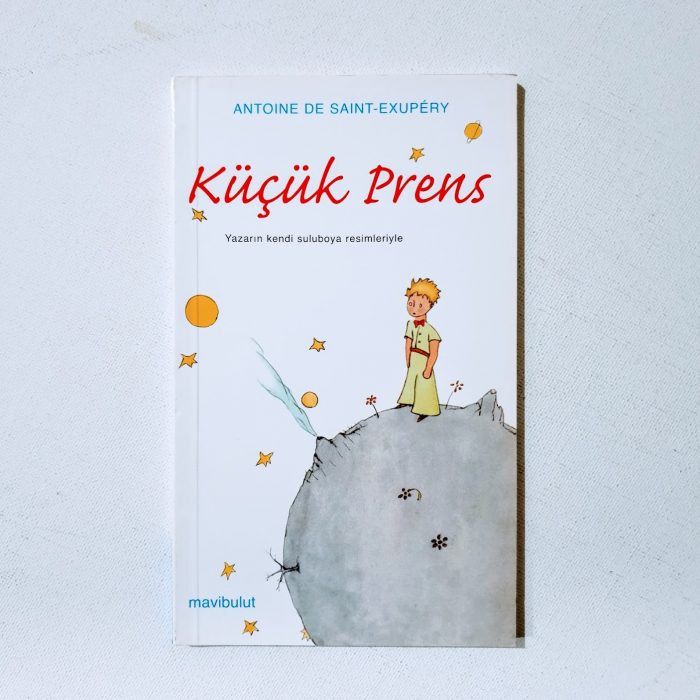National Language — Turkish
Küçük Prens, in Modern Turkish language. Turkish / Türkçe is the most widely spoken of the Turkic languages, with around 10–15 million native speakers in Southeast Europe (mostly in East and Western Thrace) and 60–65 million native speakers in Western Asia (mostly in Anatolia).
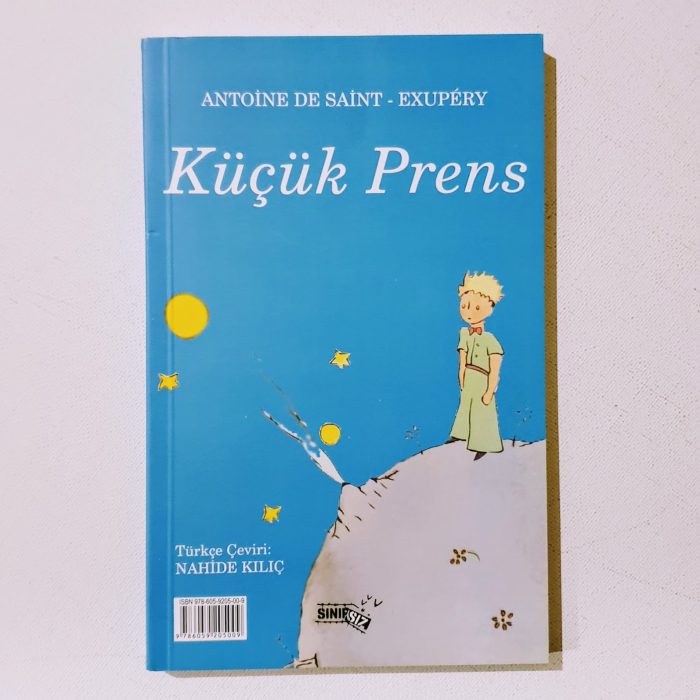
Küçük Prens, in Modern Turkish language
Turkish — Older Scripts
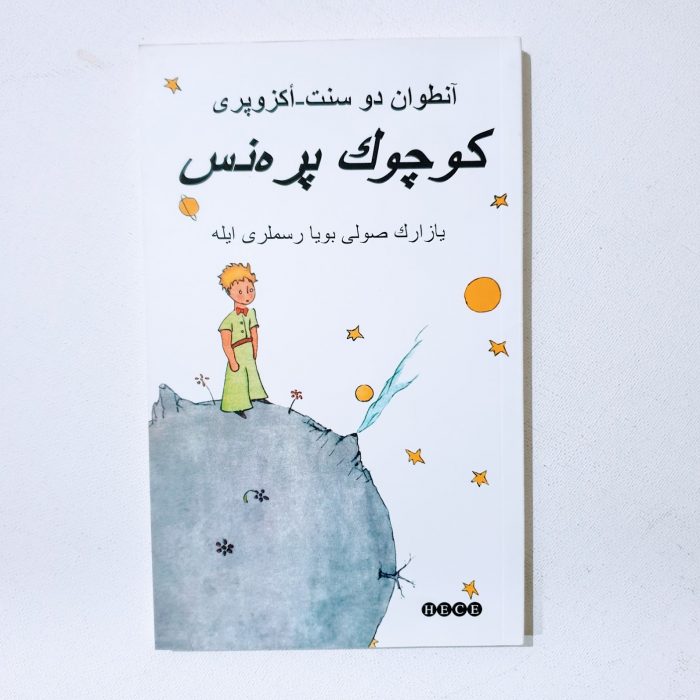
Küçük Prens, in modern Turkish language, but written in old Ottoman Turkish language, derived from Arabic abjad.
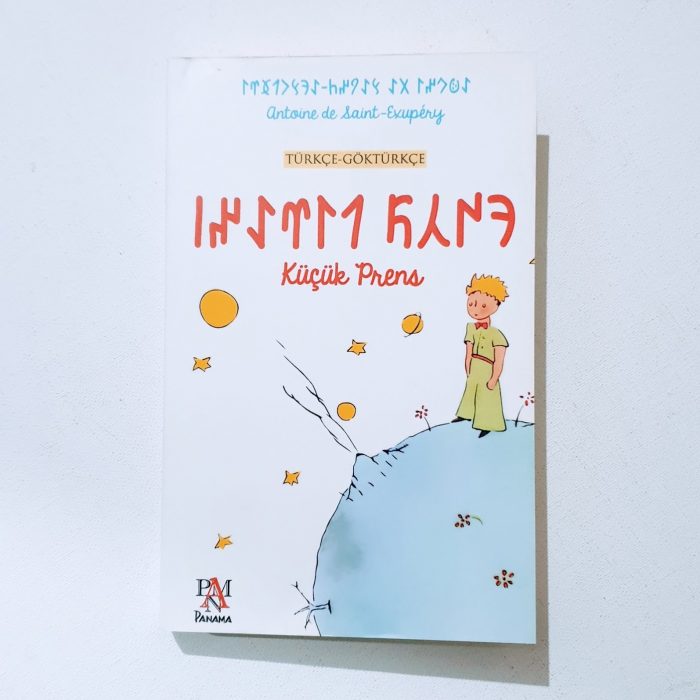
Küçük Pirens, in modern Turkey language, written in ancient Old Turkic script (also known as variously Göktürk script, Orkhon script, Orkhon-Yenisey script), which is the alphabet used by the Göktürks and other early Turkic khanates during the 8th to 10th centuries to record the Old Turkic language. The script is named after the Orkhon Valley in Mongolia where early 8th-century inscriptions were discovered in an 1889 expedition by Nikolai Yadrintsev. These Orkhon inscriptions were published by Vasily Radlov and deciphered by the Danish philologist Vilhelm Thomsen in 1893.
Minority Languages
The Laz Language
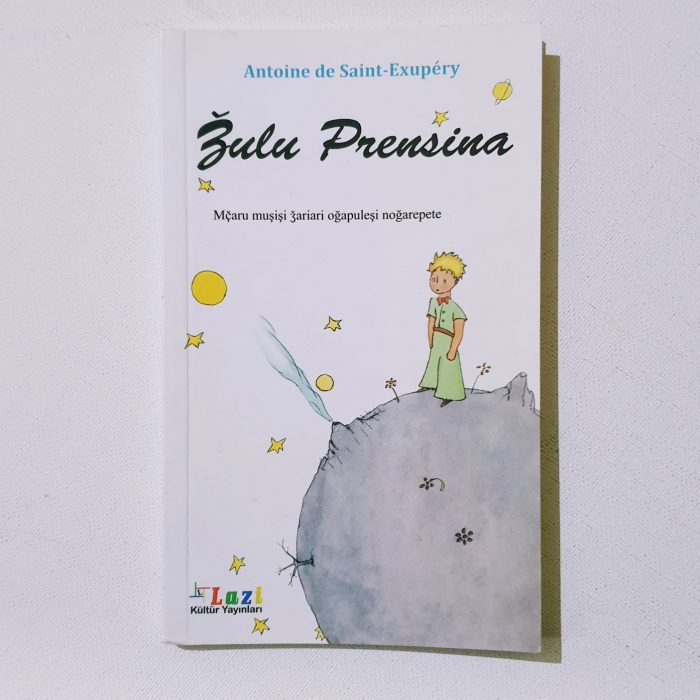
Ǯulu Prensina — in the Laz language. This language is a Kartvelian language spoken by the Laz people on the southeastern shore of the Black Sea. It is estimated that there are around 20,000 native speakers of Laz in Turkey, in a strip of land extending from Melyat to the Georgian border (officially called Lazistan until 1925), and about 2,000 in Georgia.
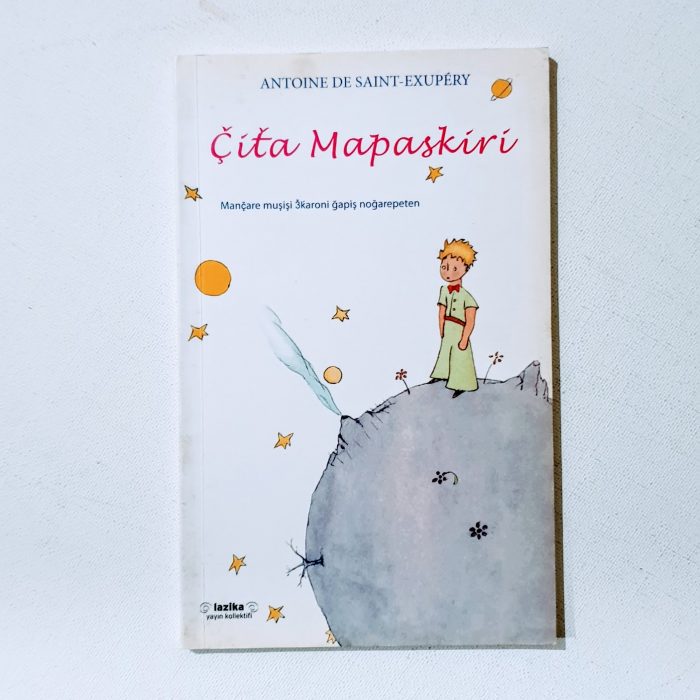
Çita Mapaskiri — also in the Laz language.
Zaza Language
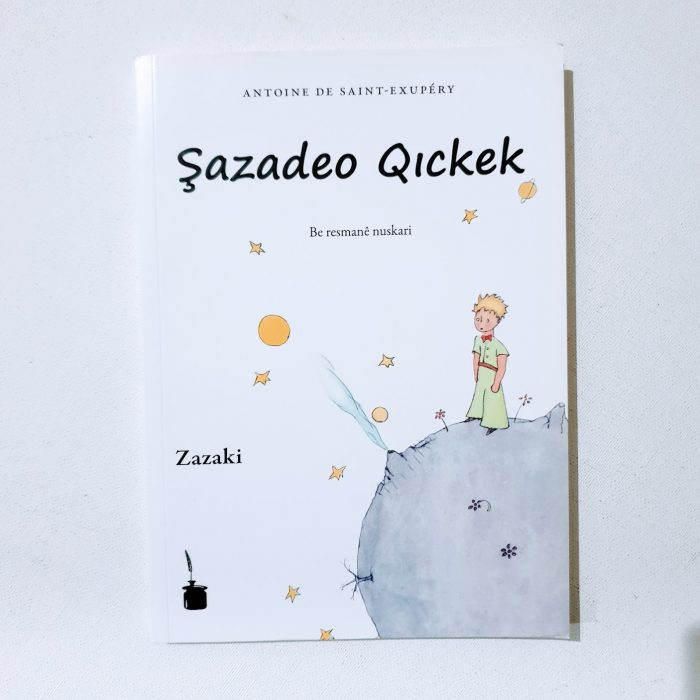
Sazadeo Qickek — in Zaza language, also called Zazaki, Kirmanjki, or Dimli. This is an Indo-European language (so, not a Turkic language) spoken primarily in eastern Turkey by the Zazas. The language is a part of the northwestern group of the Iranian section of the Indo-European family, and belongs to the Zaza–Gorani and Caspian dialect group. Zaza shares many features, structures, and vocabulary with Gorani (Hawrami), Shabaki, Bajelani and Sarli. Zaza also has some similarities with Talyshi and other Caspian languages.

